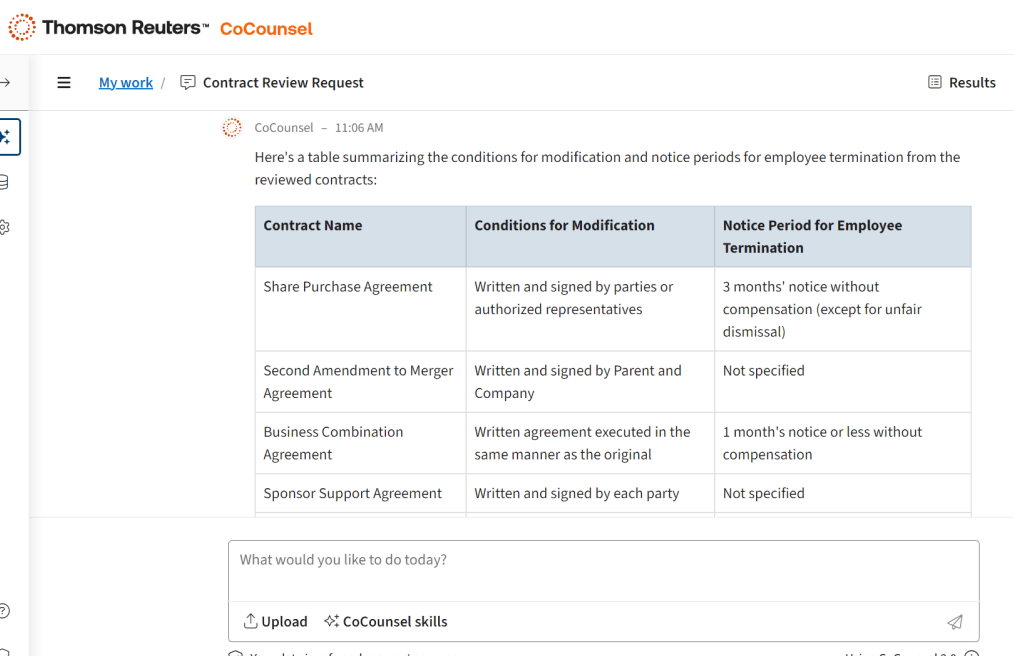List of state blue sky laws, registration requirements, process, and more resources for attorneys
Transactional law · Securities law · Blue Sky laws
In the United States, securities regulations and laws are there to prevent any fraudulent or speculative investment scheme that could mislead investors. These regulations operate at both federal and state levels.
At the federal level, we have the Securities Act of 1933 and the Securities Exchange Act of 1934, whereas the state-specific regulations are known as Blue Sky laws which add an additional layer of protection for investors.
The federal law is primarily focused on the disclosure regime, whereas the Blue Sky laws incorporate a merit-based review.
Jump to ↓
National Securities Market Improvement Act of 1996

CoCounsel Legal
Bringing together AI, trusted content and expert insights for Capital Markets and Corporate Governance
Meet your AI assistant ↗What are Blue Sky laws?
Blue Sky laws are state securities laws in the United States. They serve as a safeguard for investors, ensuring they receive necessary disclosures about securities, along with other regulatory requirements applicable in the state.
These laws are applicable regardless of whether the securities that are offered are registered or unregistered under the Securities Act of 1933 or the issuers are reporting companies or non-reporting companies. One important aspect of these laws is that if there is an overlap with respect to the federal laws, then federal laws will generally supersede the Blue Sky laws.
The term blue sky was popularized from a 1917 U.S. Supreme Court case, Hall v. Geiger-Jones Co.242 U.S. 539 (1917), where the Court described that these regulations are protections against “speculative schemes which have no more basis than so many feet of blue sky.”
Justice McKenna used it to describe the laws for preventing fraudulent securities schemes. With this phrase, he explained that these laws were enacted to prevent the sale of speculative investments that had little or no real value, especially, financial schemes that were as insubstantial as “so many feet of blue sky.”
Blue Sky laws vary from state to state, but in general, the following are provided under them:
- The securities that are to be offered must be registered under them unless there is any exception that applies.
- The securities industry personnel participating in a securities offering must have a license and registration.
- They mandate that there must be full disclosure about the securities being offered to the investors.
- There are liability provisions in case the issuers make any fraudulent misrepresentations or omissions, which can result in legal action.
Who regulates Blue Sky laws?
Blue Sky laws framework is given by the Uniform Securities Act of 1956 or the Uniform Securities Act of 2002 wherein each individual state has its own regulatory agency like the Securities Commissioner who is responsible for enforcing the Blue Sky laws.
Both Uniform Securities Acts were enacted to create uniformity among the Blue Sky laws, however there are states who have adopted them, and others have their own set of laws. This is the reason that there is no particular set of requirements for registration under them.
Registration requirements
The registration requirements under state and federal laws share similarities but may differ in certain aspects, particularly regarding the registration of securities.
At the federal level, the Securities Act of 1933 governs registration requirements under Blue Sky laws. Section 5 of the Act mandates that issuers must file a registration statement with the Securities and Exchange Commission before offering or selling securities to the public, unless an exemption applies.
The SEC reviews the registration statement in three phases:
- Pre-filing period – The issuer consults professionals for marketing the securities, manages SEC filing preparation, and audits financial documents.
- Waiting period – After filing, the SEC reviews the registration statement to ensure compliance with disclosure requirements. A registration statement is a document that provides both qualitative and quantitative information about the issuer to potential investors. It must include disclosures to ensure investors have access to SEC-reviewed information before making investment decisions.
- Post-effective period – Once approved, the issuer can proceed with the sale of securities.
The federal law is primarily focused on the disclosure regime, whereas the Blue Sky laws incorporate a merit-based review which allows the state regulators to examine the fairness of an offering based on factors such as:
- Nature of the issuer
- Issuer’s business model
- Securities being offered
Registration process
The issuer has to comply with the state-level registration requirements under the Blue Sky law, along with the federal registration requirements under the Securities Act. It requires scrutiny to determine the requirement because it is not always clearly specified and can differ from state to state with complex legal issues.
The offering is typically registered through the filing of:
- Registration statement
- Consent to service of process
- Payment of a filing fee
The following are the three primary registration methods under Blue Sky laws:
Registration by qualification
Under this method of registration, the issuers are required to submit a detailed disclosure about the issuer and complete a merit-based review by giving documents of its business operations, financials, and the risks to both at the state and federal level.
Now unless any state official objects the state registration becomes effective as soon as it is approved at the federal level. This is usually for the type of issuers who either do not have any prior track record for offering or those who are conducting their initial offering in the state.
Registration by coordination
This is a process that allows issuers to file their state registration concurrently, who are registering with the SEC so that their registration gets effective under both federal and state law as soon as the federal registration is declared effective after the approval. This method streamlines the compliance for the issuers.
Registration by notification
This is the simplest method of registration available for well-established issuers who have a history of compliance with the laws. Under this, the issuers have to file notice documents and pay state filing fees. It does not require extensive review by state regulators.
NSMIA of 1996
When going for registration of the securities offerings, the primary step is to determine which laws are applicable, this includes analyzing the federal laws as well as the Blue Sky laws. However, things changed after NSMIA.
National Securities Markets Improvement Act of 1996 was enacted to eliminate the complexity that overlapped the regulation regime of securities in the United States, causing increased costs, ambiguous outcomes, requirements, and so on.
What are covered securities under NSMIA?
Before NSMIA was enacted, all securities offerings were subject to registration requirements under both federal and state securities laws. With its enactment, the concept of “covered securities” was introduced. These securities are exempt from state-level registration (Blue Sky laws) under Section 18(b) of the Securities Act, 1933.
It must be understood that the preemption of Blue Sky law is only on the registration requirements for covered securities and offerings of covered securities. The states under the blue sky laws are still allowed to make it mandatory for the issuer of the securities to make certain notice filings and pay filing fees when the securities are offered under their state.
Exemptions
Exemptions for the registration mandate under Blue Sky laws and federal laws are divided into the following categories:
Securities and issuer-based exemptions
There are certain categories of these securities which are being offered and the categories of the issuers who automatically qualify for exemption under Blue Sky laws. They include the following:
- Securities which are issued by the US government, states or political subdivisions
- Securities which are issued by foreign governments and recognized by the United States
- Securities issued by regular financial institutions, such as federal or state-chartered banks, trust companies, insurance companies licensed in the US, and saving institutions
- Interests, debt securities, and guarantees issued by approved insurance companies
- Securities issued by religious, educational, or charitable organizations
- Securities issued as part of stock purchase, savings, or pension plans
- Securities issued by an investment company registered under the Investment Company Act of 1940 (ICA)
- Securities sold to qualified purchasers; Section 18(b)(3) of the Securities Act
Transaction-based exemptions
Transactional exemptions under the Blue Sky laws depend upon the nature of the security’s transaction rather than the type of security being offered. These exemptions primarily serve and facilitate private placements and other capital-raising activities while ensuring that the investor is protected adequately.
Some of them are discussed below:
- Sale of securities that are infrequent, and are not part of a larger distribution, are exempt under Blue Sky laws — known as isolated non-issuer transactions.
- Sale of the securities initiated by the investors rather than the issuer or the broker
- Transactions where the securities are offered by sophisticated entities such as banks, insurance companies, investment companies, or any other financial institutions, as they are already subject to the provisions of the law — Section 4(a)(7) of the Securities Act
- Rule 144 provides a safe harbor allowing for the resale of restricted securities without triggering underwriter status, such as Section 4(a)(1), thereby facilitating liquidity for investors while maintaining regulatory compliance.
- Convertible notes are often used in startup financing, and they may sometimes qualify for exemptions if issued by the company and later converted into stock, see section 3(a)(9) exemption, or if issued in a private offering — Regulation D (Rules 506(b) or 506(c)
- If the issuer is raising an unlimited amount of capital from accredited investors, then they can do so without registering the offering in each state. This is known as a private offering Regulation D – Rule 506.
- Transactions with underwriters
- Transactions in a debt instrument secured by certain real estate interests
- Transactions by an executor, administrator, sheriff, marshal, receiver, trustee in bankruptcy, guardian, or conservator
- Transactions executed by a bona fide pledge
- Securities exchanges involving a judicially approved reorganization — Section 3(a)(10) of the Securities Act
- Offers but not sales of a security if the issuer has filed a registration statement covering the security under the Securities Act, or the offer is made in compliance with Rule 165 under the Securities Act.
Practical Law Quick Compare
Build customizable charts comparing legal requirements across multiple jurisdictions at a glance
Quick Compare ↗Blue Sky laws by state
- Blue Sky Laws: Alabama
- Intrastate Crowdfunding Laws: Alaska
- Blue Sky Laws: Arizona
- Intrastate Crowdfunding Laws: Arkansas
- Blue Sky Laws: California
- Blue Sky Laws: Connecticut
- Blue Sky Laws: Delaware
- Intrastate Crowdfunding Laws: District of Columbia
- Blue Sky Laws: Florida
- Blue Sky Laws: Georgia
- Intrastate Crowdfunding Laws: Idaho
- Blue Sky Laws: Illinois
- Intrastate Crowdfunding Laws: Indiana
- Blue Sky Laws: Iowa
- Intrastate Crowdfunding Laws: Kansas
- Intrastate Crowdfunding Laws: Kentucky
- Intrastate Crowdfunding Laws: Maine
- Blue Sky Laws: Maryland
- Blue Sky Laws: Massachusetts
- Intrastate Crowdfunding Laws: Michigan
- Blue Sky Laws: Minnesota
- Intrastate Crowdfunding Laws: Mississippi
- Blue Sky Laws: Missouri
- Blue Sky Laws: Montana
- Intrastate Crowdfunding Laws: Nebraska
- Blue Sky Laws: New Hampshire
- Blue Sky Laws: New Jersey
- Blue Sky Laws: New York
- Blue Sky Laws: North Carolina
- Blue Sky Laws: Ohio
- Intrastate Crowdfunding Laws: Oklahoma
- Intrastate Crowdfunding Laws: Oregon
- Blue Sky Laws: Pennsylvania
- Intrastate Crowdfunding Laws: South Carolina
- Intrastate Crowdfunding Laws: Tennessee
- Blue Sky Laws: Texas
- Blue Sky Laws: Utah
- Intrastate Crowdfunding Laws: Vermont
- Blue Sky Laws: Virginia
- Intrastate Crowdfunding Laws: Washington
- Intrastate Crowdfunding Laws: West Virginia
- Intrastate Crowdfunding Laws: Wisconsin
- Intrastate Crowdfunding Laws: Wyoming
More resources
For more information on Blue Sky laws, see Practical Law Practice Notes:

AI news and insights
Industry-leading insights, updates, and all things AI in the legal profession
Join community ↗





